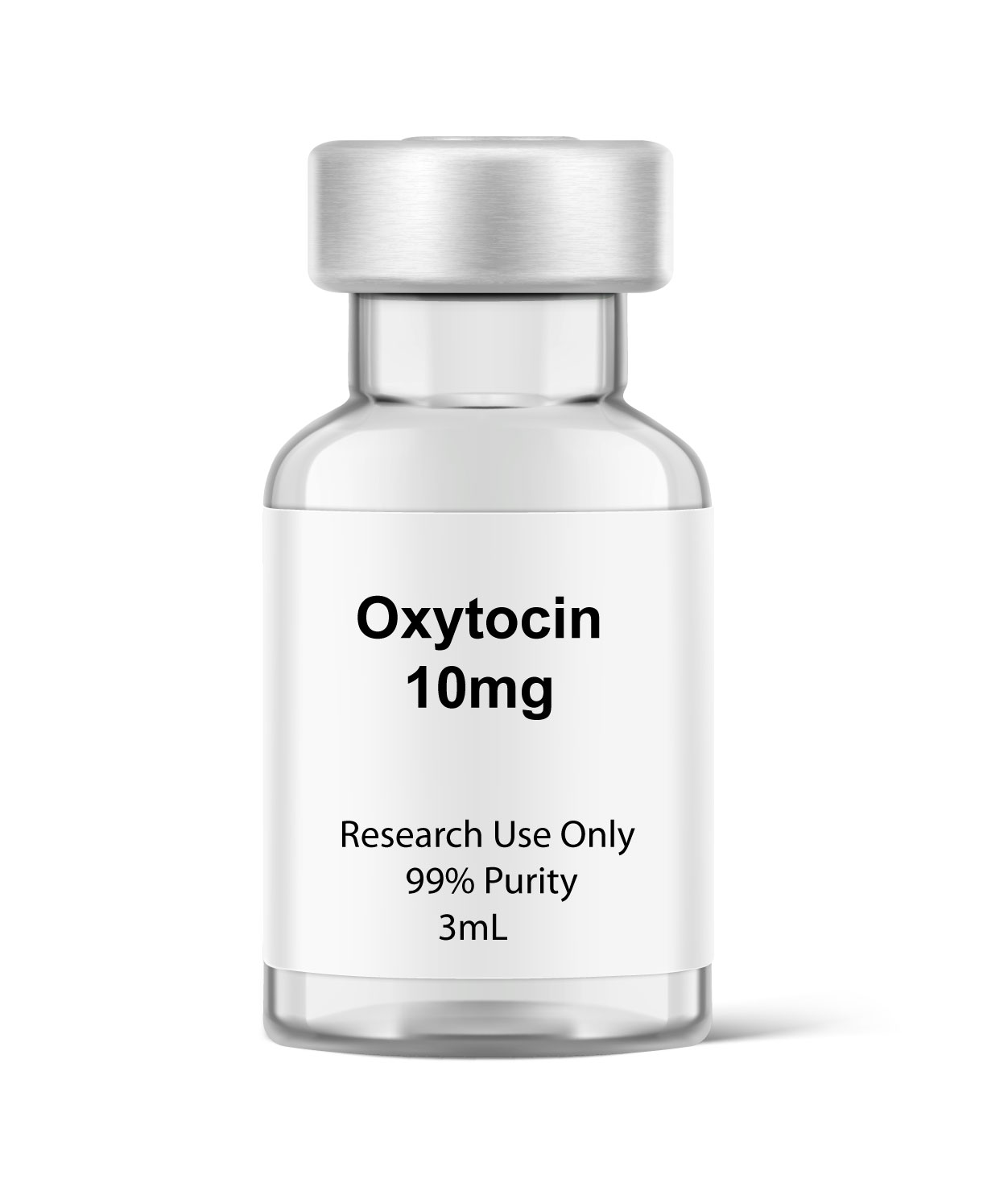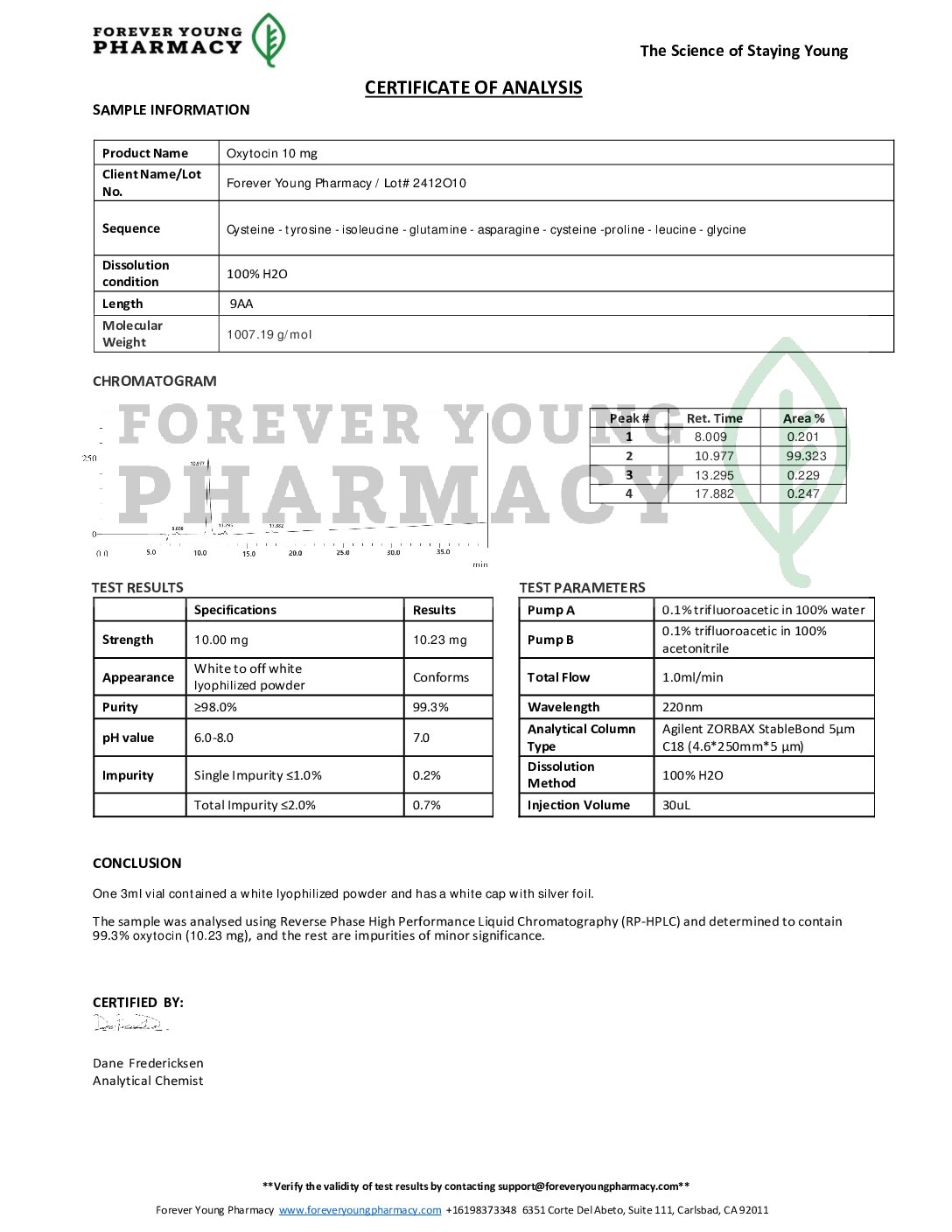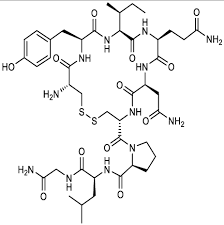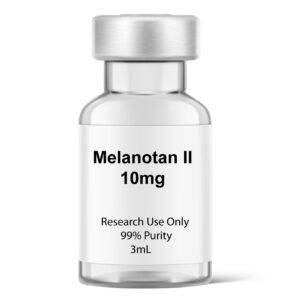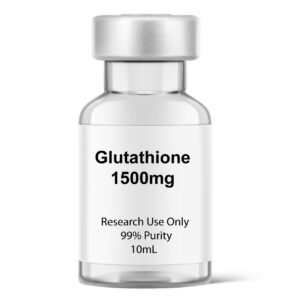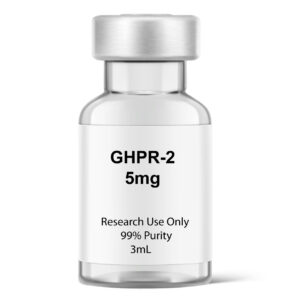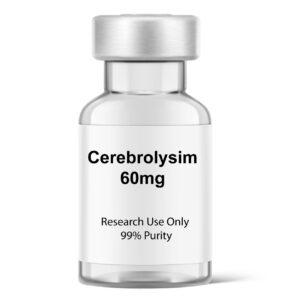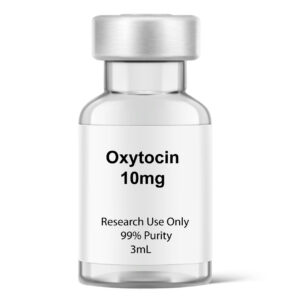Introduction to Oxytocin 10mg Peptide
Oxytocin is a synthetic research peptide composed of nine amino acids, commonly investigated in preclinical and laboratory settings for its role in modulating social behavior, reproductive physiology, and neuroendocrine responses. The 10mg preparation is standardized for consistency across experimental models.
Key Research Areas
Current in vitro and in vivo studies involving Oxytocin 10mg peptide have explored:
Social Behavior Studies: Research in animal models suggests Oxytocin may influence trust formation, social recognition, and affiliative behavior.
Neuroendocrine Regulation: Studied for its effects on hypothalamic-pituitary signaling pathways, especially in stress and reproductive models.
Maternal Behavior Models: Examined for its role in lactation, pup retrieval, and nurturing behaviors in rodent studies.
Stress and Cortisol Response: Investigated for its potential role in downregulating stress hormones and modulating anxiety-like behaviors in preclinical environments.
Reproductive Physiology: Explored in uterine contractility and parturition models, as well as in studies on hormone secretion and reproductive cycles.
Disclaimer: For research use only. Not for human consumption or clinical use. This product is not intended to diagnose, treat, cure, or prevent any disease.
Certificate of Analysis
| Property | Description |
|---|---|
| Chemical Sequence | Cys-Tyr-Ile-Gln-Asn-Cys-Pro-Leu-Gly |
| CAS | 50-56-6 |
| Molecular Formula | C43H66N12O12S2 |
| Molecular Weight | Approximately 1007.19 g/mol |
| Appearance | White Lyophilized Powder |
Research Use Only:
Oxytocin 10mg is intended strictly for in vitro testing and laboratory experimentation. It is not intended for human or animal medical use. It is not a drug, food, or cosmetic and should not be misbranded, misused, or mislabeled as such.

